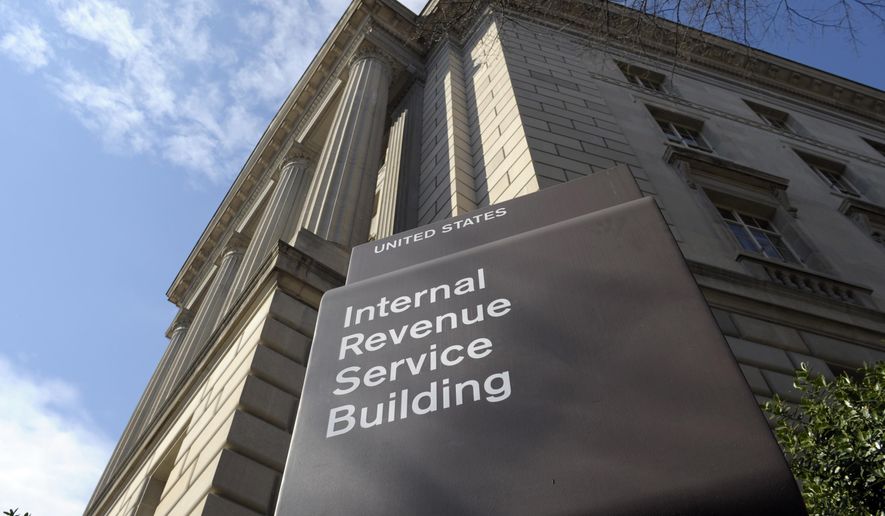The Congressional Budget Office has found that Democrats’ plan to beef up IRS enforcement, a key revenue source for funding President Biden’s multitrillion-dollar social welfare bill, falls far below White House expectations.
A CBO report released Thursday estimates that Mr. Biden’s plan to hire more than 87,000 IRS agents will generate $207 billion in new revenue over a decade. The figure is nearly half of the $400 billion that the White House claimed would be raised.
“The Congressional Budget Office estimates that the funding for tax enforcement activities provided by the bill would increase outlays by $80 billion and revenues by $207 billion,” CBO Director Phillip Swagel wrote in a letter to lawmakers.
In his letter, Mr. Swagel argued it would take three years for IRS staff to “ramp up” and reach their peak revenue collection. The analysis said in recent years, $1 in new spending on IRS operations generally brings in an additional $5 to $9 in tax collections.
But CBO also said it expects diminishing tax collections in later years. It said the IRS will likely prioritize enforcement action early in the program that the agency believes will have the highest average return. And tax cheaters will eventually figure out “new ways of evading detection.”
The analysis poses a blow to Mr. Biden’s multitrillion-dollar social welfare bill. Congressional Democrats hoped that by spending $80 billion to hire more IRS agents, they could narrow the gap between taxes owed to the federal government and the amount paid.
The Treasury Department initially estimated that expanded tax enforcement could net $400 billion more in revenue over the next decade. Despite the CBO shattering that estimate, Democratic lawmakers are unconcerned.
“Our plan to fund the IRS will close the tax gap and make the wealthy pay their fair share,” said Rep. Bill Pascrell, New Jersey Democrat. “While CBO underestimates by how much, it’s certainly no surprise given the leadership over there.”
• Haris Alic can be reached at halic@washingtontimes.com.
• Dave Boyer can be reached at dboyer@washingtontimes.com.




Please read our comment policy before commenting.